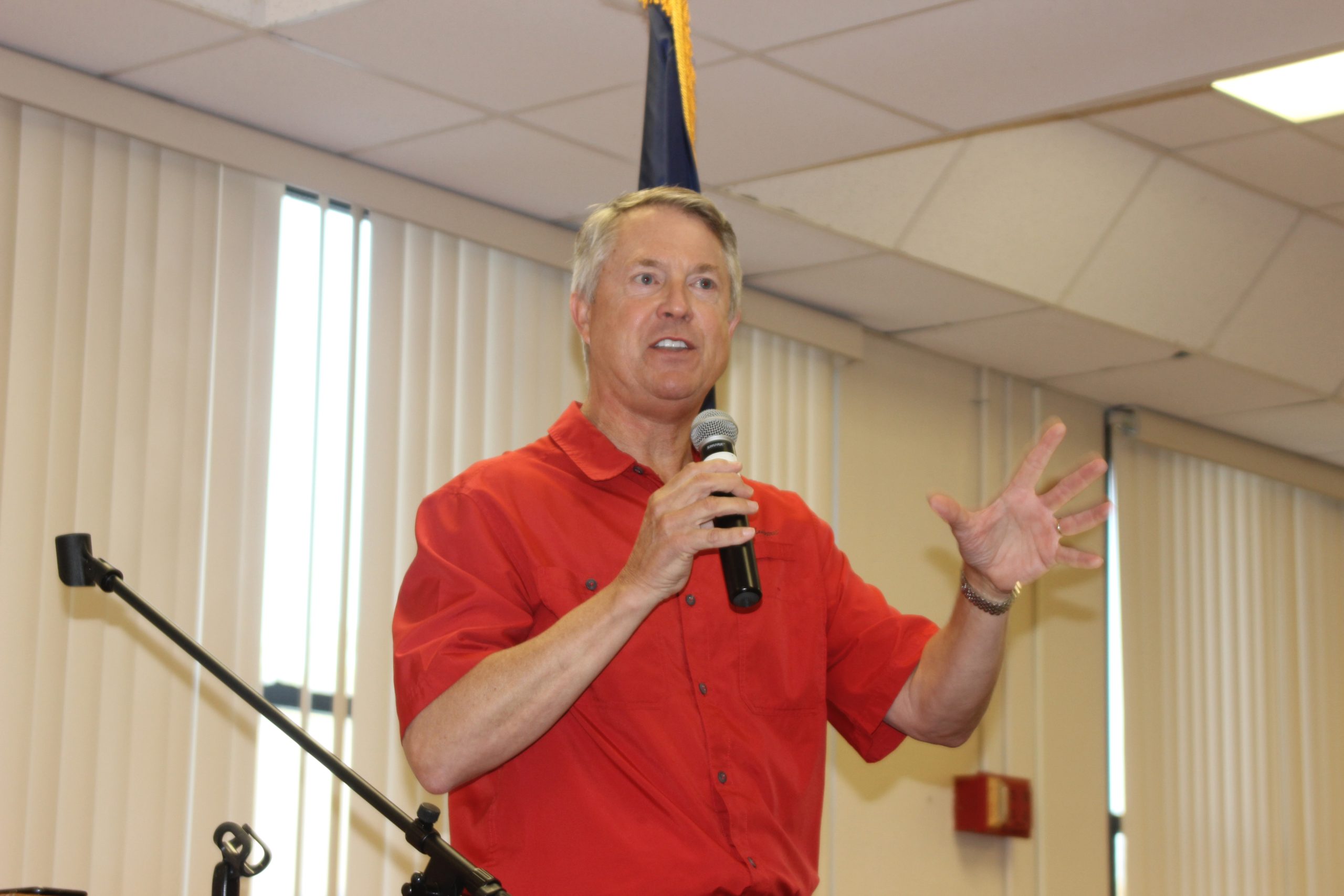Extension of current farm bill likely scenario, lawmakers say
Federal lawmakers who had hoped a farm bill would be approved by Oct. 1 say that goal won’t be met.
Kansas’ Republican delegation said the Sept. 30 deadline for a 2023 farm bill will not be reached and they expect the 2018 farm bill to stay in effect in the interim. Those comments came during the recent Agricultural Leadership Breakfast sponsored by the Kansas Farm Bureau on at the Kansas State Fairgrounds in Hutchinson. It was also a theme reiterated later during a WIBW Live Ag Forum at the Peoples Bank and Trust Arena.
United States Sen. Roger Marshall, R-KS, and Rep. Tracey Mann, R-KS, both expect a bill that will be signed by President Joe Biden later in 2024. They are members of the Senate and House agriculture committees, respectively.
They both said that crop insurance will be at the top of the list to stay intact and strengthened to reflect current prices because farmers and ranchers have been battling drought and higher interest and input costs.
The U.S. is running a national debt of $33 trillion and there is not an appetite among Republicans to increase spending, Marshall said, which means lawmakers from both parties are going to have to find a compromise. A farm bill is expected to cost $1.5 trillion over 10 years.
Mann said the farm bill needs to be long enough to provide certainty in a five-year period and yet be short enough so that changes can be made to reflect current needs. While he prefers meeting the Oct. 1 deadline, he said it was important to make sure the policies written in the bill make sense.

After crop insurance, his next three priorities were to strengthen programs that build international trade, increase agricultural research, and provide oversight whether it is on the Waters of the United States rule, lesser prairie-chicken or improve year-round E-15 renewable fuel sales.
Marshall said crop insurance helps producers to be able to plant the following years’ crop.
Both said ad-hoc disaster programs are going to be necessary when drought, hail and other acts of damage by Mother Nature occur but not on an annual basis.
Ag driver
U.S. Rep. Jerry Moran, R-KS, said the Farm Bureau breakfast is a reminder of what is important.
“You never let us forget that agriculture is the most important of the Kansas economy,” said Moran, a former House agriculture committee member and a native of Plainville. “Farmers and ranchers feed the world.”
The senior senator said Kansas is poised to grow. Success stories include Hilmar Cheese dairy processing plant in Dodge City, Bartlett Grain’s soybean crushing plant in Cherryvale, Scoular Grains’ oilseed processing plant near Goodland, and Amber Wave’s wheat ingredient plant in Phillipsburg.
Bipartisan support
Moran praised the bipartisan support to help irrigators in the Quivira region. Gov. Laura Kelly, a Democrat, wrote a letter to the U.S. Fish and Wildlife Service asking the Biden administration to help find a solution for the state, irrigators in the Groundwater Management District No. 5, and federal interests.
If the USFS exercises its senior rights it could potentially halt irrigation, Moran said. That could mean a loss of $1 billion in economic benefits to Kansas and the rural communities in the region.
Mental stress
A common theme among the speakers was to continue to press the importance of mental health and stress relief among farmers and ranchers and their families. Kansas Farm Bureau President Joe Newland said one of three farmers are impacted by mental anguish.
Marshall said unchecked mental stress can put someone at risk for suicide and he encouraged farmers and ranchers to check on neighbors and family members. Reaching out is important and Kansans should familiarize themselves with the 9-8-8 suicide and crisis hotline.
Marshall encouraged rural Kansans to take those friends and neighbors to lunch, church or to a high school football game and to be a good listener.
Kansas Secretary of Agriculture Mike Beam said failed wheat and hay crops in many regions in the Sunflower State has created additional stress on farmers and ranchers.
Sign up for HPJ Insights
Our weekly newsletter delivers the latest news straight to your inbox including breaking news, our exclusive columns and much more.
Other topics
U.S. Rep. Ron Estes, R-KS, expressed concern about taxation levels that he says are counter to helping grow the economy long term. In surveys he has conducted, concern over the national debt is the No. 2 issue among poll takers when a couple of years ago it was consistently in No. 7, 8, or 9 issue.
He said $1 out of every $5 in government spending is being used to support spending and he said that is not a sustainable formula. He added that with taxation policies undertaken in 2022, more money has been collected but spending is outstripping the increase.
Mann and Estes were both concerned about Biden administration proposals to change tax policy that could impact competitiveness on the global stage or the ability of farmers and ranchers to pass down their farms to the next generation.
U.S. Rep. Sharice Davids, D-KS, had a prior commitment and could not attend but did extend her well wishes during the Farm Bureau breakfast.
Dave Bergmeier can be reached at 620-227-1822 or [email protected].




